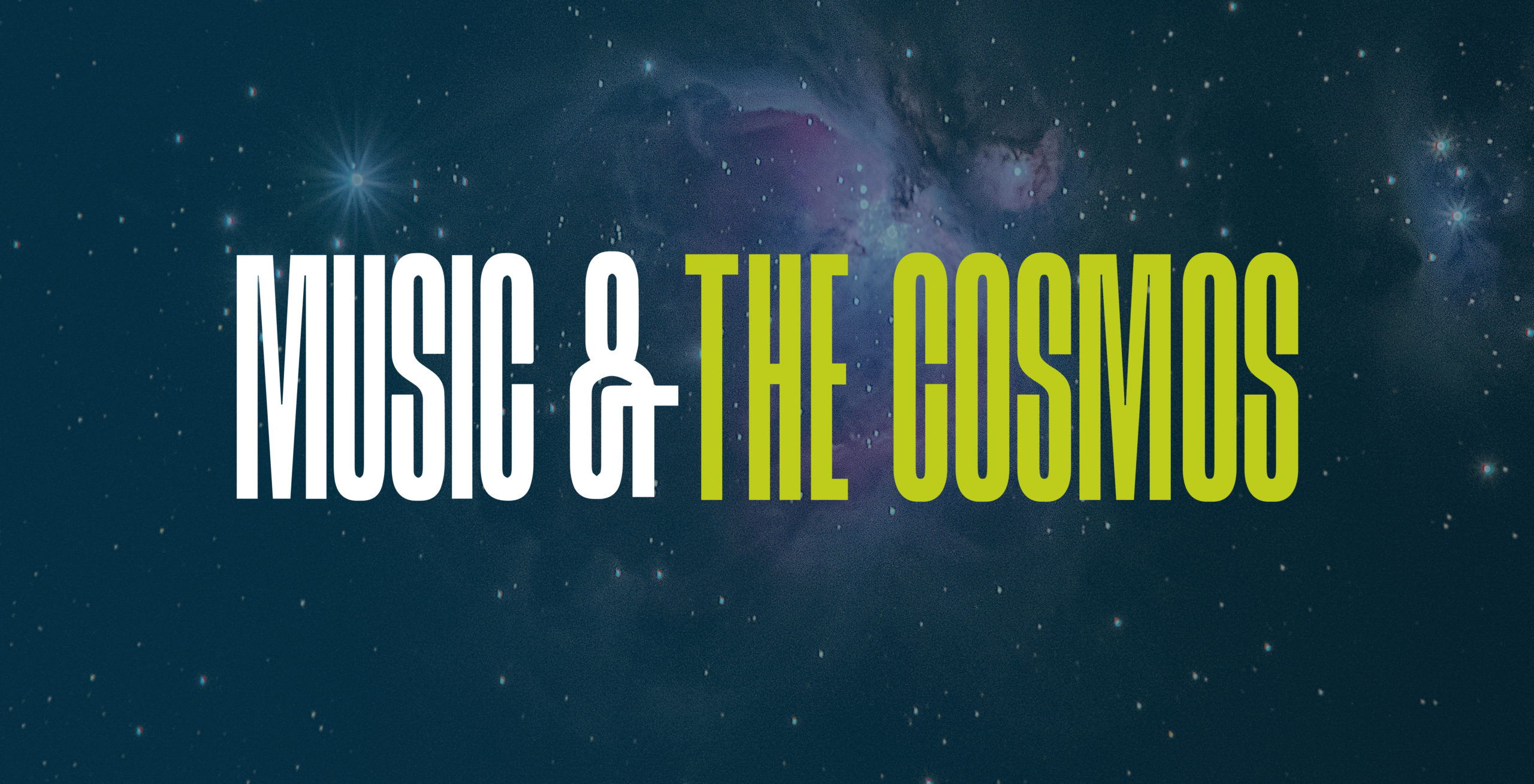
Concert and lecture on Friday, October 21, 2022 at 7:30 pm
For centuries, composers have found inspiration in the vastness of the universe. The intersection of music with the cosmos challenges our conventional thinking of what music can be, where it can occur, how it is constructed, and how it can connect us to nature.
Our special guest speakers, Observational Astrophysicist Erin Kara of MIT, and Brad Wells of the Grammy Award-winning Roomful of Teeth will present on the topics of the sonification of black holes and understanding the concept of space and its relationship to sound.
The concert will feature chamber music works of Mozart, John Cage, and Urmas Sisask performed by Concord Conservatory faculty, flutist Anthea Kechley, violinist Nicole Parks, cellist Stephen Marotto, and pianist Keun Young Sun.
Purchase Tickets in advance or payable at the door for this event.
West Concord PorchFest, Saturday, September 24th from 1:00 – 5:00 pm 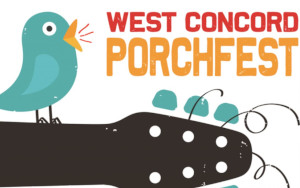
CCM faculty member Maxfield Anderson & Company will be performing outside CCM along with other performers, as part of the Annual Porchfest. A free, grassroots town music festival within walking distance of West Concord Village. Enjoy local fare, grab a map at the Harvey Wheeler Center parking lot to guide you around West Concord, and hear live music throughout the afternoon. The event is brought to you by the West Concord Junction Cultural District.
Two CCM students take the concert stage at Nashoba Brooks Concert Series
With confidence, Neven Johnson and Makai Shakarian performed in front of a large audience this summer, as the opening act for Ward Hayden & the Outliers concert held at the Nashoba Brooks School. Neven and Makai showed that their hard work and diligent practice paid off.
Bravo, Neven and Makai!
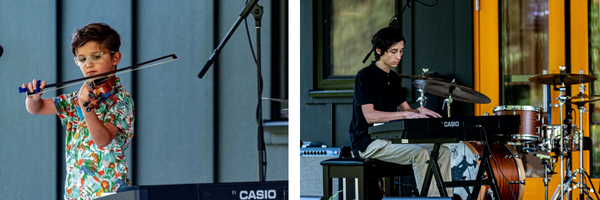
Your September Listening Project Playlist!
From chamber music to folk, jazz fusion, and country blues, CCM faculty member Stephen Marotto has given us a 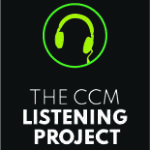 lot of terrific music to listen to and explore.
lot of terrific music to listen to and explore.
Remember to use your Listening Journal to find additional thought-provoking questions to think about while listening to the selections. It’s a great way to start insightful conversations with your family, friends, or music instructor!
Take these shortcuts to your summer playlist: Spotify
What do Fidelity, Raytheon, and State Street have in common?
They have matching gift programs.
If your employer matches tax-deductible charitable contributions, you can double the impact of your gift to CCM! Concord Conservatory recognizes and thanks to both donor and employer for this generous gesture!
Won’t you please consider giving the gift of music today?
Are you a CCM friend yet?
Join us on Instagram and Facebook to be the first to learn CCM news and more! See what music videos we like, photos we post, practice tips and articles we suggest, and new music in the music world. Be sure to bookmark the CCM Blog to never miss a new post.
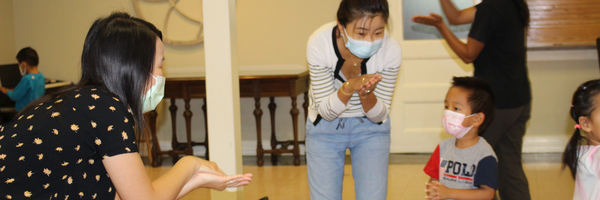 As a child in Taiwan, YuHsin Tai learned to read music. But it wasn’t until she came to the United States that she learned the importance of reading faces, which could reveal how students feel about the music they’re experiencing.
As a child in Taiwan, YuHsin Tai learned to read music. But it wasn’t until she came to the United States that she learned the importance of reading faces, which could reveal how students feel about the music they’re experiencing.
By combining the two skills, YuHsin has hit upon the perfect approach for teaching young students (ages 3–7). “Their faces tell you everything you need to know about your lesson plan,” she says. “If you see their attention wander, you have to be ready to end that part quickly and move on to the next activity. It’s a very good way to teach because you learn to look for clues about what your students are thinking.”
Getting a Feel for It
YuHsin also has come to understand that what her students are feeling when they listen to music is the key to making a connection. “You teach to the heart,” she says. “After 20 years as a teacher, I realize that young kids can feel many things in music. They can tell you, ‘This is happy music’ or, ‘This is sad music.’ So you start at that basic level before you even try to explain major and minor keys and that sort of thing.”
With a Dalcroze Eurhythmics License/Certificate from Longy School of Music of Bard College in Cambridge, YuHsin also understands the importance of enhancing the organic connection between movement and music in her young students. For example, kids can instinctively distinguish between a “running beat” (eighth notes), a “walking beat” (quarter notes), and what the youngest students call an “elephant beat” (half notes). “It’s fun to see their reaction because that’s their natural response,” YuHsin says.
A Lesson in Lesson Planning
Although her easy rapport with children seems to come naturally to YuHsin, it actually required relearning a lot of what she had been taught about music lessons. She received her Bachelor of Music Degree from the National University of Tainan, where she studied music education. It was a traditionalist approach that emphasized rote learning. “My teacher told me, ‘You have to plan your lesson ahead of time, and when the children come in you just teach them what is on the plan.’” There was no allowance for spontaneity or exploration.
That was the way that YuHsin had learned from her mother, who was also a traditional music teacher. It was an approach that placed the music-theory cart before the learn-the-basics horse. “My mom might say something like, ‘This is romantic music,’ and I would think, ‘What’s “romantic” mean?’” YuHsin says. “Or she would say, ‘Show me the melody line.’ And I’d be like, ‘Show me the what?’”
To her mother’s everlasting credit, however, she also allowed YuHsin the freedom to improvise on the piano. “Or at least she didn’t say no!” YuHsin says with a laugh. “Whether I was having a happy day or a sad day, I could go to the piano and just play whatever I was feeling.” That remains true today.
Putting the ‘Improv’ in Improvement
While she’s grateful that she had an upbringing steeped in music education, traditional instruction, and improvisation, YuHsin strives to make things easier for her own students than they were for her.
Those students now include her two daughters: three-year-old Katie and Lexie, who is almost seven. They serve as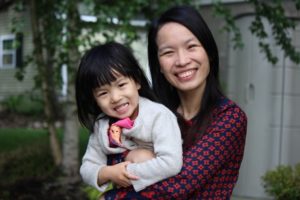 an in-house focus group that allows YuHsin to workshop her teaching ideas. “If they say, ‘Hey, mom, this is so boring — I don’t want to do it,’ I know I have more work to do,” YuHsin says. “But if they say, ‘Hey, mom, this is so good!’ — then I will try to do more of that.”
an in-house focus group that allows YuHsin to workshop her teaching ideas. “If they say, ‘Hey, mom, this is so boring — I don’t want to do it,’ I know I have more work to do,” YuHsin says. “But if they say, ‘Hey, mom, this is so good!’ — then I will try to do more of that.”
Lexie has become YuHsin’s barometer. “She often tells me with her eyes if she is feeling the connection,” YuHsin says. “She says things like, ‘Hey, mom, I like this music! It’s like little fairies dancing in a higher place! Now they’re running! Now they’re jumping!’ She creates a story about the music she’s playing.”
Like YuHsin, Lexie also has developed a fondness for improvising on the piano. And like both her mother and her grandmother, she has a natural instinct for teaching. “Now she is helping her sister,” YuHsin says. She’ll say, ‘I’m going to play walking music now.’ Or, ‘Where’s the high note? Where’s the low note?” Things like that.”
YuHsin has learned her teaching lessons well — including the most important one of all. “At Longy, they told me, ‘You have to follow the students,’” YuHsin says.
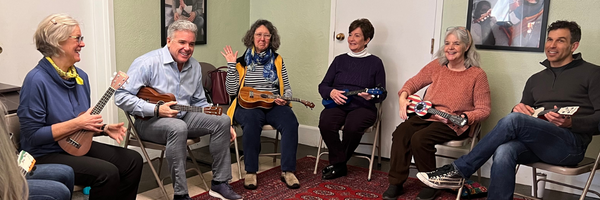
Groups engage, spur inspiration and curiosity, revealing musicians quest to learn more about music.
Research tells us what students of all ages already know— musical learning carries significant benefits like improved brain health and emotional wellness. At CCM, we fundamentally believe that music provides an opportunity for lifelong learning, and our expanded slate of adult-focused classes invite students to pursue both breadth and depth in music’s place in their lives.
Group classes seem to be the impetus for much more to come for participating musicians. Banjoist and CCM faculty member Rich Stillman knows this to be true. He says, “I love the community feel of group classes. The people who attend the same classes usually end up playing music together long after the group class ends. The group students reinforce and encourage each other. I have seen group classes become the nucleus of long-term jams. It’s great to see people who are still playing together years after group classes finish.”
Learning alongside others enhances your musical and technical skills—it helps students work on listening and focusing skills so that their timing and pace is in line with fellow musicians. Group learning allows for valuable feedback and pep talk from peers—not just from the instructor, confidence to play with others, gets creative juices going, and makes creating music so much fun.
Students in group classes have a special bond and confidence when they play with each other. Some CCM offerings allow students to start as beginners and grow as they learn, while other classes expand on existing skills and techniques.
Guitarist and CCM faculty member Michael Dinallo says, “One of the great benefits of group lessons is brainstorming. For example, take my Shufflin’ the Blues or The Hootenanny group classes. In each class, I will present a classic song in the genre. We will listen and then throw ideas around the room on how each player might approach their version of the song. This is where the brainstorming comes into play. One player might suggest something that sends another off on a tangent they might not have thought about. This can ping-pong through the entire class until we all, including me, might end up in a place where no one expected to be, but we’re all glad to find!”
Music group classes for adults!
Adult learners are the fastest-growing segment of the school community. The courses are varied and vibrant, many emerging from the CCM American Roots program.
“CCM is not just for kids—we welcome adults who are returning to music education, having their first musical experiences, or simply finding themselves interested in the joy and connection that comes from making music with others,” said Kate Yoder, CCM’s founder and executive director.
The Ukulele Crash Course and Ukulele 2: You’re not a beginner anymore taught by CCM faculty member Aaron Jay Myers are intended to be progressive, with Crash Course students advancing to the Ukulele Club, where they’ll be rewarded with the social and communal aspects of playing and singing together.
CCM faculty member Phil Sargent leads the Ukulele Club, which guarantees to expand skills and repertoire—and as Phil says, “It turns out to be a fun jam with a social aspect. Everyone participating is really open-minded, and it’s just a blast.”